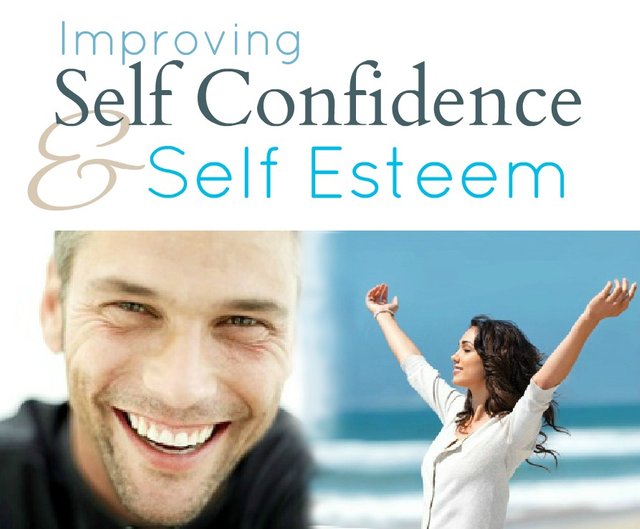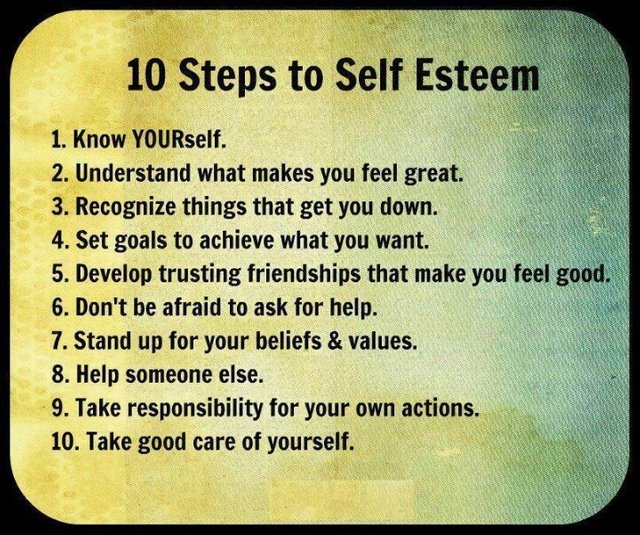Confidence and self-esteem
Having positive self-esteem and feeling confident in yourself isn't always easy. There are various factors that affect the way we feel about ourselves, including personality traits, negative experiences in childhood and even media representations of success and beauty.
One aspect that many people overlook when it comes to self-confidence is our physical health. Think about it - when you are feeling physically fit and are eating a balanced diet, chances are you feel better about yourself compared to when you fill up on junk food and don't get enough exercise. This is because the mind and body are inextricably linked. Not only can our bodies be affected by what's going on in our mind, our bodies can change how we feel emotionally.
On this page we'll look at this concept in more detail, exploring how a balanced diet rich in nutritious, mood-boosting foods can contribute to improved self-confidence and help with self-esteem.
What is self-esteem and self-confidence?
Having positive self-esteem means, in essence, that you like and accept yourself. If you have low self-esteem you may think you aren't 'good enough', that people don't like you or that you need to change yourself. Feeling like this can affect the way you live your life and can hinder you from reaching your full potential.
Similarly, confidence is all about having belief in your capabilities and not worrying what others think of you. When you feel unconfident you may shy away from certain situations or people, which again can hold you back.
Body confidence is another important aspect of confidence - when you feel confident about your body you are more likely to feel confident in other aspects of your life. This is an area where diet plays an important role; healthy eating can help your body feel better, which (over time) will help improve body confidence.
Improving self-confidence
As we previously mentioned, there are lots of things that could be affecting your confidence, so figuring out what these factors are is an important first step. From here you can set yourself challenges to build up your confidence.
Factors that can affect confidence:
Your job - What you do day in and day out is bound to affect your confidence and self-esteem. If you feel undervalued or underappreciated, you may start to lose confidence. If this is the case, organise a meeting with your manager or a HR professional to address your feelings.
Your hobbies - Having a hobby outside of work can help to ease stress and boost your confidence as you partake in an activity you're good at. If you don't have a hobby, try learning a new skill - your confidence will improve as you progress.
Your relationships - If you feel taken for granted in your relationships or belittled, your confidence may take a knock. Try to address these issues with those close to you.
Your level of physical activity - Exercise helps us to de-stress and boosts serotonin (the happy hormone). Being physically active can also help you improve your body confidence, which can do wonders for your overall confidence.
Your diet - Eating a nutritious diet is essential to good health and can also help boost body confidence. If you are eating an unbalanced diet and have erratic meal patterns you may feel demotivated and less confident.
How does food affect your confidence?
The idea that food can affect our mood and behaviour isn't new and researchers have found some fascinating links between what we eat and mental health. When it comes to confidence and self-esteem, considering your diet and making any necessary changes can help to reduce anxiety, boost your mood and in turn help you feel better about yourself and more confident.
So, how does food do this? It's all about getting the right balance of nutrients from foods which can help our mood and the way we feel. For example eating carbohydrate-rich foods make the brain receive more serotonin - a hormone that makes you feel positive, relaxed and confident. Too many foods or drinks that are high in sugar or caffeine however can cause mood fluctuations, which can leave you feeling lethargic, irritable and anxious.
Some research also suggests that low levels of vitamins, minerals and essential fatty acids can affect our mental health; for example, links have been seen between depression and low levels of omega-3 oils.
Mood boosting foods
Ensuring your diet comprises of nutritious foods with vitamins, minerals and good fats is the best way to help you boost your mood and feel more confident in yourself. In addition to this, there are certain types of foods known for their mood-boosting qualities, including:
Carbohydrates – These are broken down into glucose which is essential to supply the brain and muscles with energy. Too little and an irregular intake of carbohydrate foods can leave you feeling tired and lacking concentration. Eating plenty of unrefined carbohydrate foods, for example whole grains, vegetables and fruit can help sustain your energy levels for longer. Carbohydrate-rich foods may also help the brain receive more serotonin. Serotonin is made using tryptophan, a part of protein from the diet. Therefore make sure your diet contains a variety of protein sources, such as meat, fish, eggs, low fat cheeses and pulses which also contains other essential nutrients.
Foods rich in omega-3 fatty acids - In recent years there have been studies that suggest omega-3 fatty acids can help to prevent low moods and depression as they affect the neurotransmitter pathways in the brain. Ensure you are eating at least one portion of oily fish a week (no more than two if you are pregnant or breastfeeding) such as sardines, salmon, mackerel and trout.
Foods rich in vitamin D - This vitamin is thought to increase levels of serotonin in the brain, so aim to include foods in your diet that contain vitamin D such as eggs, oily fish, yoghurt and fortified cereals.
Foods rich in vitamin B - Another key vitamin for energy production, low levels of vitamin B have been noted in those with depression. Foods like spinach, broccoli, meat, dairy and eggs are great sources of B vitamins.
Foods rich in selenium - Studies have shown a link between low selenium levels and poor mood, so try to include foods like lean meat, whole grains, brazil nuts, oats, beans/legumes, seafood, nuts and seeds.
Foods to limit
As well as including all the right mood boosting foods, you may find reducing your intake of certain foods can help with self-esteem too. Take a look below for some foods to limit:
Sugar - If you're not feeling good about yourself you may instinctively reach for a sugary snack to perk yourself up. This may work in the short-term, however the spikes and falls in blood sugar levels will disrupt your mood and leave you feeling drawn out and lethargic in the long run. Try to replace sugary snacks for a piece of fruit, nuts or seeds instead.
Caffeine - Drinks like coffee and caffeinated soft drinks can cause mild dehydration if too much is consumed and may lead to withdrawal headaches. Similarly to sugar, if too much caffeine is consumed it can disrupt your energy levels and cause mood swings, which over time can affect your confidence. Try to reduce the amount of caffeine you consume and up your intake of caffeine free herbal teas and water.
Alcohol - Drinking alcohol may give your confidence a brief lift, but as too much alcohol can be both a stimulant and depressant you are likely to feel irritable and anxious the following day. Avoid drinking over the recommended guidelines and have at least two alcohol free days a week - your body and mind will thank you for it.


Hi! I am a robot. I just upvoted you! I found similar content that readers might be interested in:
https://www.nutritionist-resource.org.uk/articles/confidence.html
Downvoting a post can decrease pending rewards and make it less visible. Common reasons:
Submit